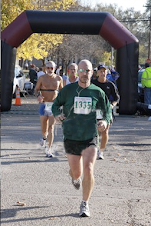Life can sure change your training habits. When I graduated from college and began gearing up for my first half marathon, I had no other concerns besides my running and my job. I wasn’t married. I had no kids, no pets, an apartment where I didn’t have to do the maintenance. Nothing. So I ran—six days a week, religiously, for about four months. I was up to 70 miles a week or so. My “short” runs were six-milers. I ran six-and-a-half-minute miles. Consistently.
And I regularly trained for more than I was going to run on race day. Weekends were 18- or 19-milers. I’d be on the roads and trails for hours.
When I ran my first half-marathon, I thought I did pretty well. In a field of nearly 16,000, I finished in the top 1,000. My time was 1:35. I was happy.
So I did it all again the next year.
I trained harder. I put in more miles. I lost more weight. And when I ran, I performed even better. I beat my previous time by more than two minutes. I placed even higher.
Then I got married. Then my wife told me she was pregnant. Then we bought a house. Then we had another child. Then we moved to a different house. Subsequently, those endless days on the road changed.
Don’t get me wrong, my life is so much richer than it was in those early days. But it’s different. Running, which used to play such a prominent role in my life—it defined me in many ways—took a back seat to other priorities. I still ran, but not as far. I ate more and exercised less. I gained weight. I was more tired. I had other obligations. I couldn’t just leave the house at the drop of a hat to go run for an hour or more.
You don't know Jack, but you should.
4 months ago

